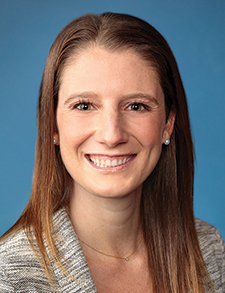 You would hope that multiple years of toiling away in a grueling 80+-hour weekly schedule would prepare you for anything. Yet, many successful otolaryngologists acknowledge the steep learning curve they encountered when making the transition from residency to full-time practice. Four otolaryngologists (three of whom received Triological Society grants) shared lessons learned in their first five years of practice, and tips on how today’s residents can navigate some of the inherent challenges.
You would hope that multiple years of toiling away in a grueling 80+-hour weekly schedule would prepare you for anything. Yet, many successful otolaryngologists acknowledge the steep learning curve they encountered when making the transition from residency to full-time practice. Four otolaryngologists (three of whom received Triological Society grants) shared lessons learned in their first five years of practice, and tips on how today’s residents can navigate some of the inherent challenges.
Explore This Issue
August 2024Ashley E. Kita, MD

Ashley E. Kita, MD – Assistant professor, David Geffen School of Medicine, University of California Los Angeles (UCLA)
Dr. Ashley Kita earned an undergraduate degree in engineering before pursuing her medical degree in otolaryngology at the David Geffen School of Medicine at UCLA in 2015, where she also completed her residency in head and neck surgery. In 2021, Dr. Kita completed UCLA’s Biodesign Fellowship. Today, her time is split between seeing patients and doing translational research funded by the National Institutes of Health, the Triological Society, and the American College of Surgeons.
Q: How has your education in engineering informed your work in otolaryngology?
Otolaryngology is the perfect field for someone with an interest in engineering. It is a field full of opportunities to investigate a patient’s symptoms and then use that information to select treatments to target the problem. Many of my patients’ problems can be understood with mechanical or engineering-related analogies. I enjoy explaining things in ways my patients can understand, whether it be describing a tympanogram as “a gust of air into the sail of the ear drum” or vocal folds as “shutters on the windpipe.” It is wonderful to experience the moment when the understanding “clicks” for patients because we can then troubleshoot their problems together.
I did a nonclinical biodesign fellowship because I want to see the technologies developed in my lab go on to impact the care of patients. I’ve served on several American Academy of Otolaryngology-Head and Neck Surgery (AAO-HNS) committees, including the Medical Devices and Drugs Committee, where we run an annual innovation competition for early-stage ideas, known as ENTrepreneur Faceoff. This year, I’m excited to serve on the Sleep Disorders Committee.
Q: Given your unique background, how did you go about finding a position?
Coming at it from the view of a surgeon-scientist, it was important for me to have support for a very early research career until I was able to get extramural funding. And, if you’re negotiating for a position that involves research in academia, you want to be clear about the structure and timing of your days. I did, and still do, a lot of cell culture and animal work. So having research days spaced out in a way to accommodate this was key for success. The job description should fit you; you shouldn’t necessarily have to bend over backward to fit the needs of the job description. That said, given every individual’s unique needs, I encourage applicants to have an open dialogue with their future group or employer to see whether a position could be adapted to their needs.
Q: What qualities have helped you develop your career in these first few years of practice?
I’m very willing to quietly chip away at problems and accept that solutions can sometimes take quite a while to appear. Inspiration can come in unexpected ways. We recently had a problem in the lab where we were trying to figure out how to do laryngoscopy in an animal model, and the sizing or price point of most scopes made this technically difficult. Ultimately, I was able to adapt an $11 video otoscope for my needs at a fraction of the cost of other solutions and with the added benefit of easy technological integration through a user app.
While in clinic, I try not to get caught up in electronic health record system frustrations and tasks that feel only tangentially related to patient care by mentally reframing things. I take a step back and remember that helping patients feel better is what brings me joy and that my energy is better spent on pondering more challenging patient presentations than on negative emotions. This career was once just a dream, and now I have the great honor of living it. Reminding myself of this helps put things into perspective.